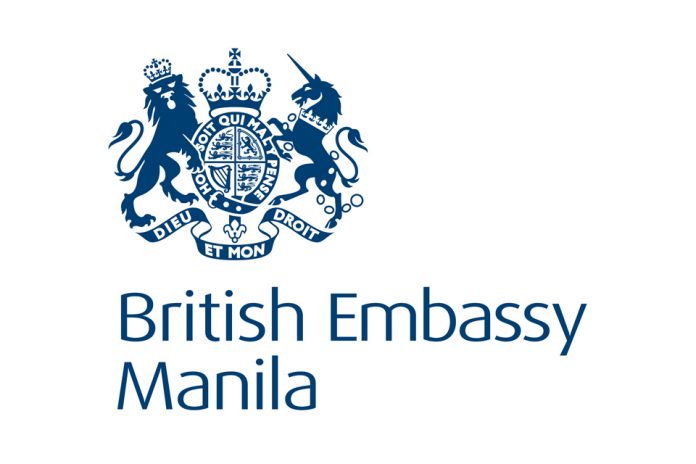The Philippines has once again suffered the brunt of climate change impacts. Less than a week after the devastating Super Typhoon Goni (Rolly), Typhoon Vamco (Ulysses) struck, leading to the declaration of a state of calamity for the entire island of Luzon. These extreme events in the Philippines derail economic gains and only exacerbate existing pressures brought about by the COVID-19 pandemic.
Tomorrow, the UK will be hosting the first virtual Climate Change and Environment Dialogue with the Philippines led by Environment Secretary Roy Cimatu as chairperson of the Cabinet Cluster working on Climate Change. We will agree on a Partnership to further strengthen our cooperation to tackle climate change. We will set-out the climate and environment priorities including for the 26th Conference of Parties (COP26), which the UK will host in partnership with Italy in November 2021, and reach agreement on energy transition and nature-based solutions.
As we start the conversation, we want to recognise the growing momentum in the Philippines towards an inclusive, resilient, and green recovery.
In the energy sector, we welcome the announcement of the Department of Energy (DOE) to no longer accept proposals for new coal power projects. Such effort provides a positive signal for businesses to shift their investments to renewable energy sources. We are also delighted for Masbate City to join the Powering Past Coal Alliance, along with Negros Oriental and Ilocos Norte; it shows commitment to advance the transition from unabated coal power generation to clean energy. We are optimistic that more and more local government units will follow suit. Next week, we look forward to the Philippines’ participation in the first meeting of the COP26 Energy Transition Council and the Asian Clean Power Dialogue. These platforms will facilitate genuine conversation with leaders in the international power sector to accelerate the global energy transition.
We are also delighted that the Department of Transport is supporting the “Driving Change Together” Declaration. This signifies strong leadership to transform the transport sector and industry from conventional and polluting to cleaner, more economical and sustainable alternatives.
The UK-Philippine cooperation on climate and environment continues to grow covering a wide range of sectors including energy, green infrastructure, health, hydrometeorology, agriculture and biodiversity supported by the Darwin Fund Initiative, Newton Agham Programme, and the UK’s multilateral funding to the Urban Climate Change Resilience Trust Fund.
The UK’s ASEAN Low Carbon Energy Programme supports the development of the Sustainable Finance Roadmap and has already provided recommendations to the Department of Energy on the administration, classification and certification of energy service companies, and voluntary renewable energy market development. Our study on Scenarios for Energy Transition confirmed the Bloomberg finding that coal power plant additions beyond 2023/24 are not expected to be economical in the Philippines. We are also enthusiastic to launch our green recovery project with the United Nations Development Programme and sign the Memorandum of Understanding with Energy Secretary Alfonso Cusi to develop the 2050 Calculator Pathway, a tool to plan the Philippines’ low-carbon transition.
Domestically, the UK remains committed to doing our share. Prime Minister Boris Johnson recently announced the Ten Point Plan for a UK Green Industrial Revolution to allow the UK to forge ahead with eradicating its contribution to climate change by 2050. It also serves as the blueprint to support up to 250,000 “new” green collar jobs. It comes as the UK prepares to host the Climate Ambition Summit, with the UN and France, and in partnership with Chile and Italy, on December 12 – a pivotal moment for world leaders to share ambitious new commitments to tackle climate change.
Countries in the region are beginning to rally behind the goal of reaching net zero emissions, including China, Japan and South Korea. We hope, too, that the Philippines will join the majority of countries around the world in announcing commitments to go above and beyond what was announced in 2015 when parties to the Paris Agreement committed to tackling the climate crisis.
Five years later, there is much more to be done. Climate Change is a shared global challenge – every country in the world needs to take action to secure the future of the planet for our children, grandchildren and generations to come. It is our responsibility to stop this. There is no time to waste.







